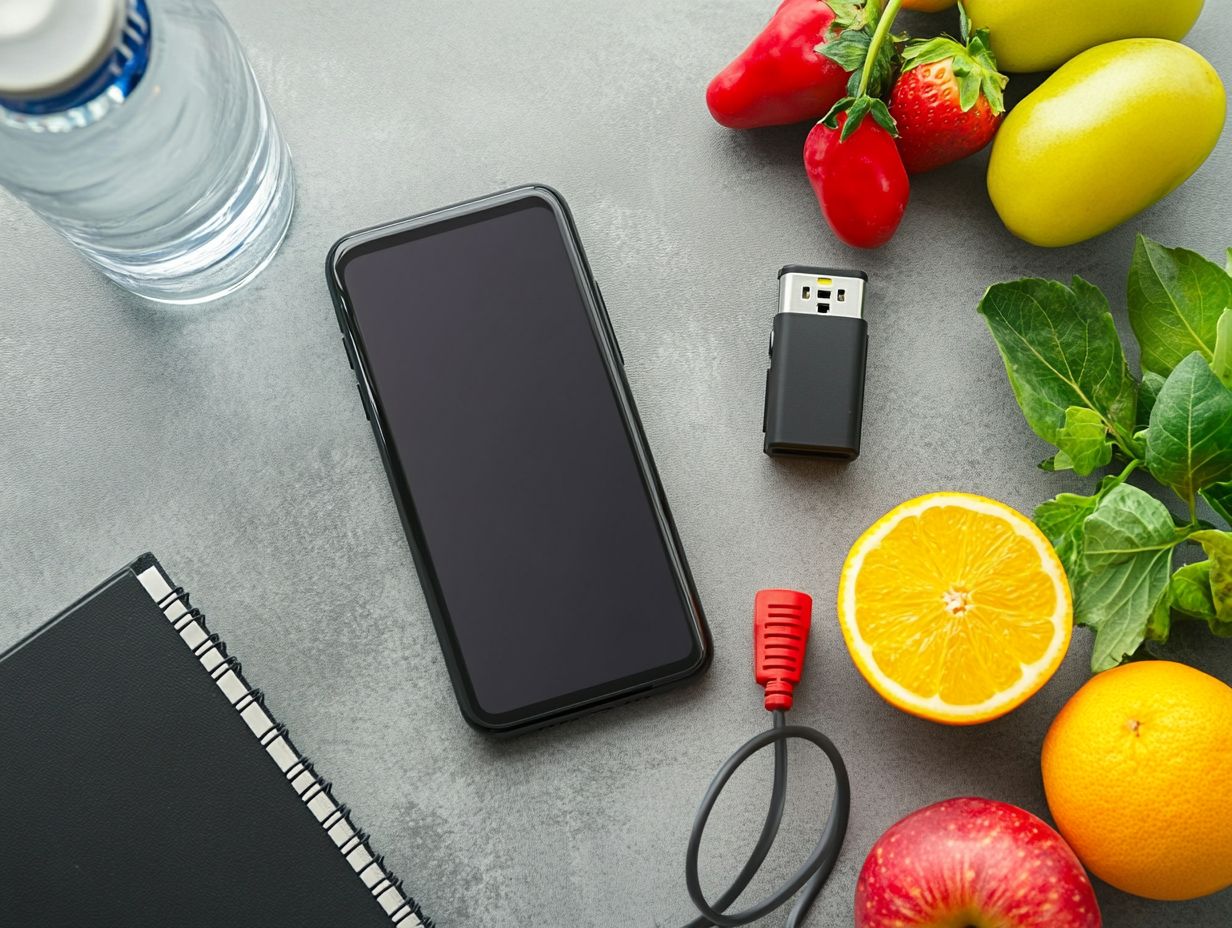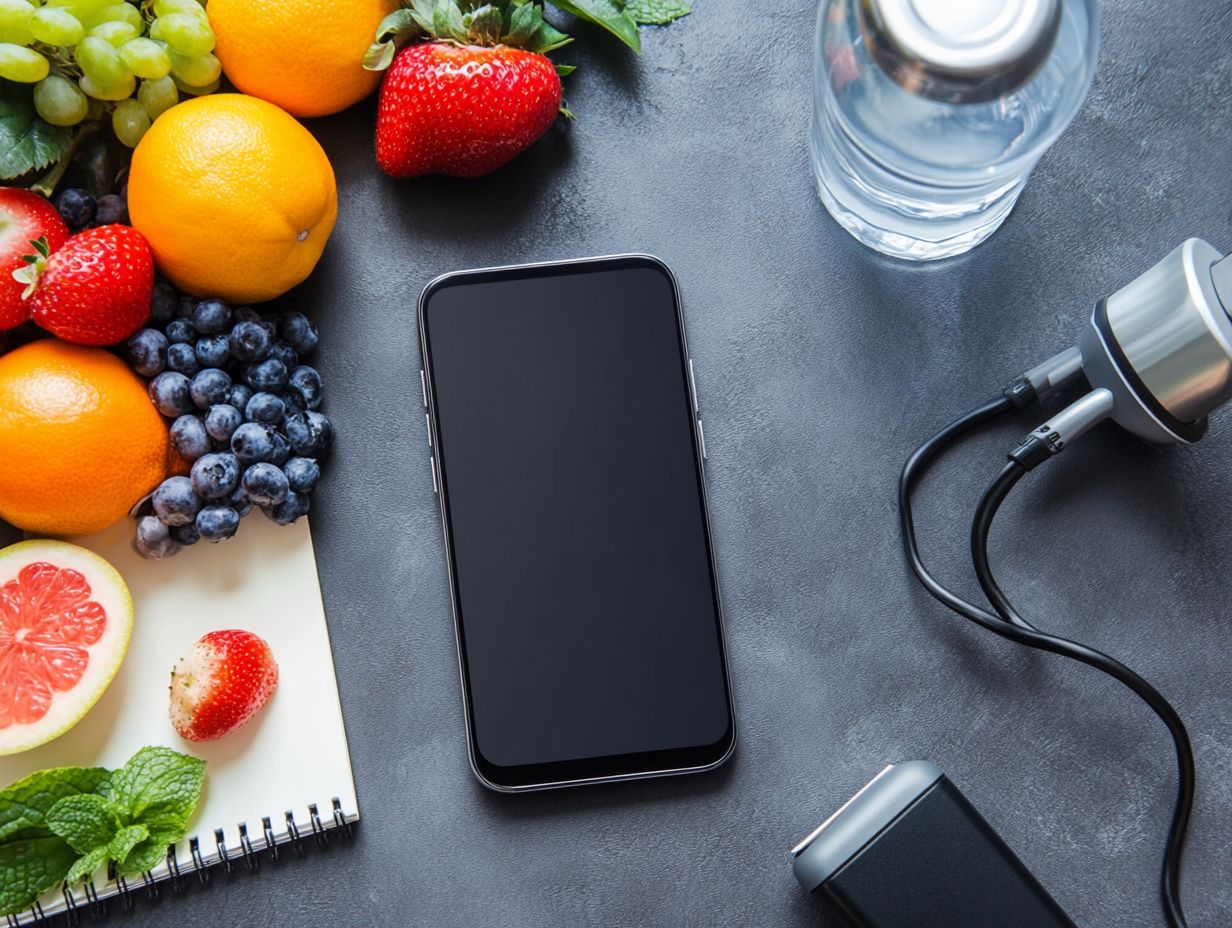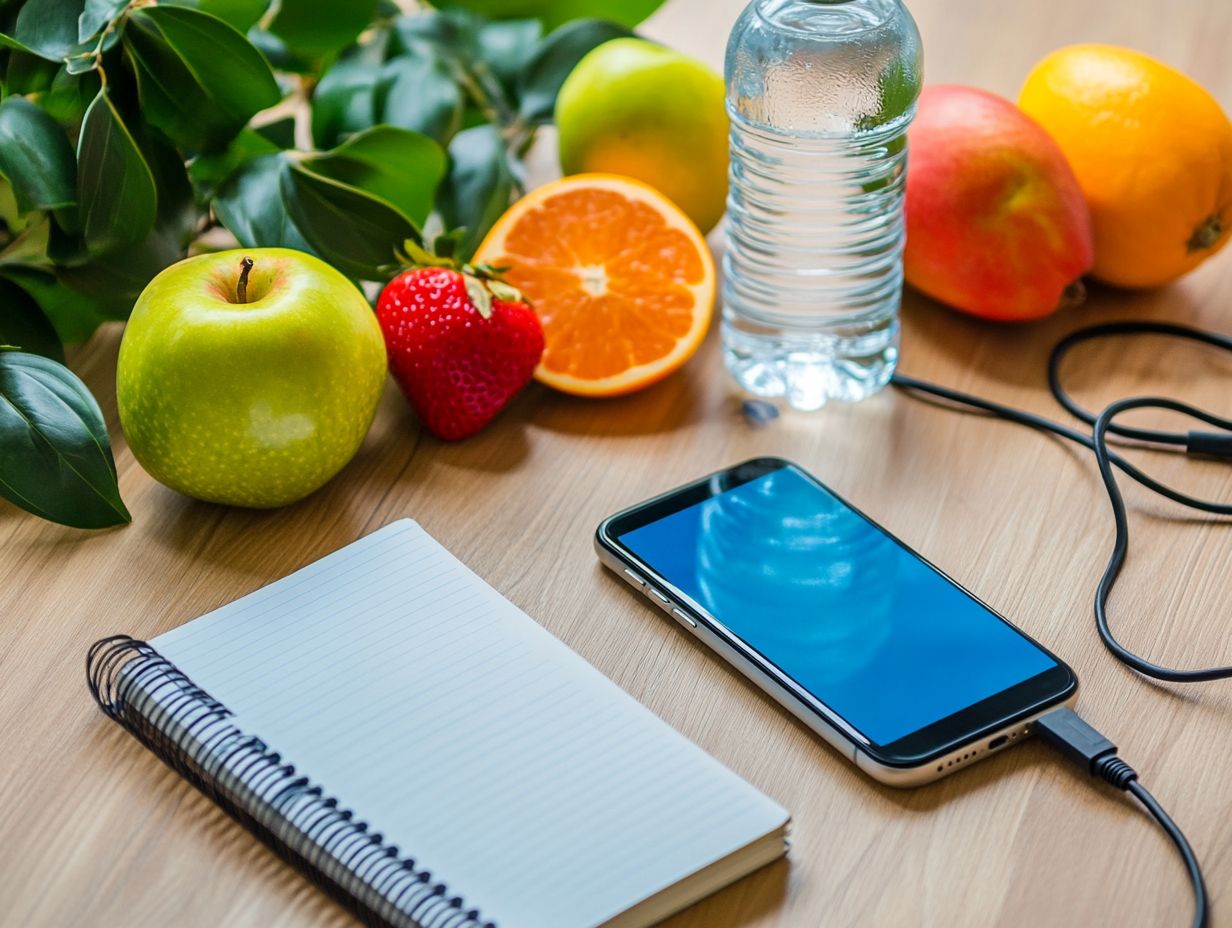How to Keep Your Battery Healthy and Lasting
In today’s tech-driven landscape, preserving battery health is crucial for ensuring your devices function seamlessly. Want your devices to stay powered up and ready for action? Keep reading!
Whether you’re using a smartphone, laptop, or tablet, understanding the factors that influence battery life and how to care for it can save you from those frustrating moments when power runs low. This article delves into optimal charging practices, environmental influences, and the warning signs of a failing battery.
You’ll discover straightforward strategies to enhance battery longevity and receive guidance on when and how to replace a depleted battery.
Contents
Key Takeaways:

- Understand the factors that affect battery life to make informed decisions about usage and maintenance.
- Simple changes in charging and usage habits, along with being mindful of environmental factors, can greatly extend the life of your battery.
- Know the signs of a failing battery and replace it when necessary to avoid potential damage to your device and ensure optimal performance.
Understanding Battery Health
Grasping the nuances of battery health is essential for you as an iPhone user. It plays a pivotal role in both the performance and longevity of your device.
The health of a Lithium-ion battery, which is commonly used in smartphones and laptops due to its efficiency, can be impacted by various factors. These include charging cycles, temperature fluctuations, and your specific usage habits.
Experts such as James Bell and Nicole Levine highlight the need to monitor battery health through your settings. Using features like Low Power Mode significantly enhances your device’s performance and extends its battery life.
What Affects Battery Life?
Several factors significantly impact the battery life of your iPhone. These include temperature, performance settings, and the number of charging cycles it has gone through.
Extreme temperatures pose challenges to battery efficiency. Both very high and low temperatures tend to reduce battery capacity. Keeping your screen brightness at a moderate level can drastically extend your usage time, as the display often consumes a substantial amount of power.
Background applications also play a crucial role. You might not realize that continuously running apps can drain your battery life even when they re not actively in use. By monitoring these factors and adjusting your settings accordingly, you can enhance the overall longevity and performance of your device s battery.
Tips for Maintaining Battery Health
To achieve optimal battery health and maximize the longevity of your iPhone, it is crucial for you to adopt effective charging and usage habits. Similarly, knowing how to keep your car’s battery in good shape can significantly enhance your vehicle’s battery performance, ensuring it serves you well for years to come.
Proper Charging and Usage Habits

Proper charging and usage habits are essential for preserving the battery health of your iPhone and ensuring optimal performance throughout its lifespan. Avoid complete discharges; letting your battery drain to zero can significantly shorten its overall lifespan.
Using Apple-certified chargers is equally important, as these products are specifically designed to optimize performance while minimizing risks associated with third-party alternatives.
Being aware of the impacts of excessive charging cycles enables you to make informed decisions about your device’s care. Each charging cycle, especially with rapid charging or power-hungry apps, can gradually degrade battery capacity. Therefore, adopting practices that promote longevity is crucial for every iPhone user.
Start implementing these tips today and watch your device’s battery life flourish!
Environmental Factors
Environmental factors like temperature extremes and humidity can significantly affect your iPhone’s battery life.
High temperatures reduce battery efficiency and can even cause failure. Heat speeds up chemical reactions in the battery, shortening its lifespan.
Low temperatures can also impact performance, making it hard to rely on your device in chillier months.
Keep your iPhone within a temperature range of 32 F to 95 F (0 C to 35 C). Use protective cases and avoid direct sunlight to maintain optimal battery health.
Signs of a Failing Battery
Recognizing the signs of a failing battery is essential for you as an iPhone user. Awareness of these symptoms can help prevent performance issues and keep your device functioning optimally.
Common Symptoms
Common symptoms of a failing battery in your iPhone include rapid battery drain, unexpected shutdowns, and sluggish device performance all clear indicators that your device needs attention.
These issues can significantly disrupt your daily activities. Imagine your iPhone dying unexpectedly during an important call or while you re deep into a crucial app. Rapid battery drain might leave you struggling to last through half a day of normal usage, leading to inconvenient, frequent recharges.
Unexpected shutdowns not only interrupt your ongoing tasks but also create anxiety about potential data loss, especially when you’re working on something time-sensitive. Slow device performance often appears as lagging apps and unresponsive screens, turning even simple tasks into frustrating experiences.
By recognizing these signs early, you can take proactive steps towards battery replacement or an upgrade, ensuring your iPhone remains reliable and efficient.
Extending Battery Life

You can significantly extend your iPhone’s battery life by making a few simple adjustments to your habits and settings, ensuring better battery health over time.
Simple Changes to Prolong Battery Health
Implementing simple changes, like reducing screen brightness and managing background apps, can significantly enhance your iPhone’s battery health.
One crucial step is navigating to the Settings menu to turn off location services. This helps preserve battery life and boosts your privacy.
Managing push notifications is another way to prevent unnecessary disruptions and conserve energy. Head over to the Notifications section in Settings to customize alerts or disable them altogether for certain apps.
These adjustments, combined with mindful charging practices, will create a more efficient and durable experience for you as an iPhone user.
Replacing a Dead Battery
Replacing a dead battery in your iPhone is crucial. Understanding how to select the right replacement is essential for optimal performance and maintaining the overall health of your device’s battery.
When to Replace and How to Choose a Replacement
Knowing when to replace a dead battery in your iPhone and how to select the right replacement is essential to keeping your device performing at its best.
Pay attention to key indicators that signal a replacement is necessary, such as a noticeable decline in battery health or unexpected drops in performance during tasks that used to run smoothly. Choosing the right replacement components is equally important; opting for certified parts ensures compatibility and longevity, while non-certified alternatives could jeopardize your device’s integrity.
Do your research now to avoid future headaches! Consider the implications for your warranty to make a well-informed decision about which battery will best meet your iPhone’s needs.
Frequently Asked Questions

1. How can I keep my battery healthy and lasting?
To keep your battery healthy, avoid letting it drain completely. Charge it to around 80% and then unplug it. For more detailed information, check out this guide on how to maintain your car’s battery health. Also, don’t use your device while it’s charging.
2. Does temperature affect the lifespan of my battery?
Yes, extreme temperatures can harm your battery. High heat can degrade it, while cold can drain it faster. Keep your device at room temperature for best results.
3. How often should I fully charge my battery?
You don t need to fully charge your battery every time. In fact, letting it drain completely is not recommended. Aim to charge it to about 80% for better health.
4. Can I overcharge my battery?
Yes, charging too much can damage your battery. Unplug your device when it s fully charged. If you charge overnight, use a timer to prevent overcharging.
5. How can I make my battery last longer?
To extend your battery life, adjust settings like screen brightness. Turn off unnecessary features and close apps when not in use. Consider investing in a high-quality battery.
6. How do I know when it’s time to replace my battery?
If your battery drains quickly or doesn t hold a charge, it might be time for a replacement. Look for signs like swelling or unexpected shutdowns. Replace it soon to avoid device damage!






